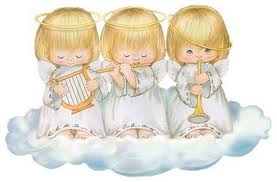Dia de los Angelitos
Dia de los Angelitos (All Saints Day)
Please feel free to stop by our alter, bring a picture, a wooden toy, some sweets or just yourself.
The alter will be built on Thursday October 31st 2pm-5pm, please feel free to stop by then to help if you like. Keep reading if you would like more information about All Saints Day:
In Mexico, November 1 is set aside for remembrance of deceased infants and children, often referred to as ‘angelitos’ (little angels). Those who have died as adults are honored November 2. In the eighth century, the church decreed November 1 as All Saints Day. Setting aside the day to honor the martyrs and saints was an attempt to replace the 2000-year tradition of the Celts and their Druid priests who combined harvest festivals and celebrated the new year on November 1.
The Days of the Dead, celebrated throughout Mexico, coincide with the Christian All Souls and All Saints days, November 1 and 2nd. While the church attempted to transform the joyous celebration to a suitably tragic image of death and a serious day of prayer focusing attention and reflection on the saints and martyrs. The people of Mexico did not fully adopt the early priests’ ideas, and by keeping their familiar ceremonies, All Saint’s Day and All Soul’s Day evolved into the celebrations that today honor the dead with color, candles, joy.
In the pre-Hispanic era the Aztecs honored their dead with celebrations tied in with the harvest season. The ancient calendar called for festivities in remembrance of deceased children, called Miccailhuitontli (Little Feast for the Dead). The mythology of the Aztec tribes has it that los ‘angelitos’ go to a part of Paradise where there is a tree of human breasts, and they sit under it with their mouths open. Nowadays, it is believed that the little angels, having lived too short a time to fall into sin, go straight to heaven.
The death of a child is not a catastrophe. A family knows that they have another ‘angelito’ to be its representative, its natural intercessor with God.” The offering for little ones customarily features traditional wooden or tin toys, along with sweets and a cup of atole or milk.

